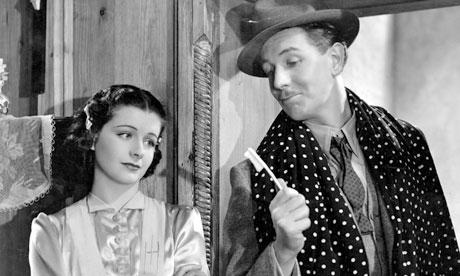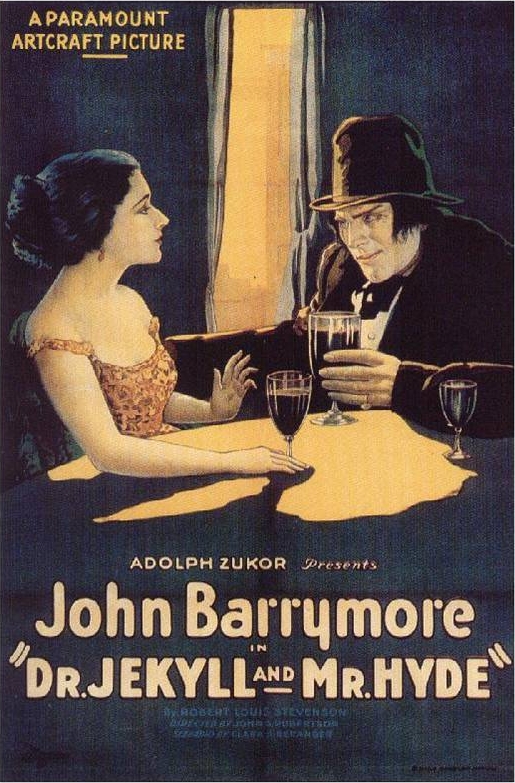This post is part of the Universal Blogathon hosted by Silver Scenes. Be sure to check out the other entries here!

Wrapping up my month of silents comes a quirky and thoroughly entertaining comedy from Universal starring Reginald Denny and Mary Astor!
Rufus Billop (Reginald Denny) was born with a thermometer in his mouth and a bottle of medication in his hand. That is to say that dear old Rufus was a wee bit frail when he was born, so much so that he had to spend some time in an incubator when he was an infant, and though he survived the experience left him a hopeless hypochondriac. Matters weren’t helped much by the fact that pretty much everyone in his family fed his delusions, all except for his Aunt Beulah (Lucille Ward). Rufus has now grown up into a man dominated by his neurosis and is stuck living with Aunt Beulah because he has outlived every other member of his family. For her part, Aunt Beulah is under the impression that all Rufus needs is some red meat and a visit from a twelve foot tall lady osteopath.

Rufus prefers the company of other, more conventional doctors. He is visited by one such doctor, Doctor Seaver (Clarence Geldart), who realizes at once that Rufus is far healthier than he thinks he is. Dr. Seaver becomes much more interested when he hears about Rufus’ financial prospects. Although Rufus has no money of his own at present, he stands to inherit $750,000 as long as he stays alive for the next three years. While Rufus is certain that he will be dead long before that ever happens, Dr. Seaver convinces him to take out a loan against his inheritance so that he can spend the money to have his final months spent in the comfort that any dying man might wish. As luck would have it, Dr. Seaver also knows just the fellows who would be willing to take on this deal!
Mr. Clinch, Mr. McIntosh and Mr. Peck (Otis Harlan, William V. Mong and Tom Ricketts) are willing to loan Rufus $100,000 in exchange for the rights to his inheritance. After an extensive medical examination Rufus is declared an absolutely healthy hypochondriac and therefore a completely risk-free investment. Rufus is touched that these men are willing to help make him comfortable in what he is sure are his final days. After receiving the money, Rufus sets about creating an oasis of hypochondriacal desires, complete with his own personal nurse. When Clinch, McIntosh, and Peck go to visit him they find Rufus apparently at death’s door having been ushered closer to there by his nurse, Death Watch Mary (Martha Mattox). In a panic that their meal ticket might be punched too early, the three men rush off to Dr. Seaver who prescribes a change of scenery for Rufus.

The change of scenery comes in the form of a new nurse named Dolores (Mary Astor). Dolores is not only young and pretty, but she also believes in sunshine, fresh air, and not paying Rufus any mind. Rufus does indeed sit up and take notice of Dolores and decides to take a good hard look at himself. What he sees is not impressive and Rufus is determined to make himself into a new man. He will become a man who, to quote his pretty young maid (Helen Lynch), is “not afraid of nothing!”
Rufus’ new life begins with pork chops. From there it is a short leap to new clothes, a new car, a new driver, and some snappy dance moves. Of course Rufus begins to take things too far and does things like crashing a motorcycle, driving his car on the wrong side of a racetrack during a race, and begins reading up on deep sea diving, aviation, and steeplejack tricks. This new found lust for life is shortening the collective lives of Clinch, McIntosh, and Peck. If Rufus gets himself killed they won’t get their money! The only person he listens to is Dolores, whom he has taken a particular fancy to, so the three men go off to enlist her help. Dolores however has caught on to their scheme and has been coming up with one of her own to save Rufus from himself, as well as Clinch, McIntosh, and Peck.
Reginal Denny is one of those actors who I know from sight but not by name. But I know him like this…

Not like this…

So imagine my surprise when I realized that the man who I knew from MR. BLANDINGS BUILDS HIS DREAM HOUSE was the same man crashing a motorcycle in OH, DOCTOR! Denny was an Englishman and a WWI veteran of the Royal Flying Corps who made a name for himself in silent film by playing the “All-American” guy in comedy films. I have to say that I found his brand of humor quite refreshing. While the comedy stylings of Keaton, Lloyd, and Chaplin can sometimes be a little out there when it comes to gag set ups, OH, DOCTOR! features comedy based on real life situations. Rufus is goofy and quirky certainly but he is goofy and quirky in the realm of reality. As a nurse I can’t tell you how many of these moments reminded me of patients, and family members, that I had encountered over the years. I loved the parts when Dolores is practically, and sometimes literally, rolling her eyes at Rufus. I could completely sympathize.
I was first introduced to Mary Astor via THE PALM BEACH STORY. Seeing her run circles around Rudy Vallee, Joel McCrea, and “Toto” made me sit up and take notice of this dynamic woman. I had no idea that she had a career in silent film prior to watching this film and let me say she is just as “sit up and take notice” as ever, which is even more impressive given the fact that she was only eighteen when this film was made. As an aside, can I ask why teenagers in classic/silent films are always twenty times more sophisticated than I ever was at that age?

Anyway, Dolores is fantastic. Her moments with Rufus when she is first dealing with his neurosis are hysterical, especially to any healthcare professionals who will know exactly where she is coming from. Not only that but she is also a genuinely smart person. Sure she likes Rufus and dresses up in a pretty dress to impress him, but she also very quickly gets a read on his situation and figures out a way to deal with it. No running off to Rufus for help, no soppy weeping for mercy at the feet of Clinch, McIntosh, and Peck. Dolores, like Rufus and his comedy, feels very rooted in reality and it makes her an even more enjoyable character as a result.
I was classify OH, DOCTOR! as a charming comedy. It is different than most silent era comedies but is just as funny. It also has a wealth of great character actors who are all serving up their A-games. This was one of those films where I enjoyed the supporting cast just as much as the main characters. The only sour note in the film would have to be the racially sterotyped intertitles given to the Chinese gardener, Chang (George Kuwa). While this was typical of the time, although it was rare that an Asian character would be played by an Asian actor, it is still a bit jarring in practice. Luckily it is only a few instances and not enough to ruin what is otherwise a really fun film that is deserving of a good deal more attention. Don’t worry, I won’t make any jokes about it being just what the doctor ordered. Even though it is.
Fritz of Movies Silently is the one who introduced this film to me through her great review which can be found here.
















%20(ss).jpg)



























